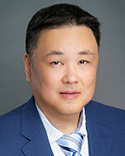What being Asian or Asian American means to me – When asked this question, people will commonly answer family which is of course not surprising. However, when I use the term, I am not referring to the generic use of the term “family”, but am specifically referring to being a “Kum” (금). Let me explain First, let’s start with my last name. The pronunciation gets butchered quite a lot, either intentionally or unintentionally. Most people pronounce Kum, like it rhymes with Zoom. It is subtle but my last name is more of a hard “K” with a Ummm. As for my first name, my Korean name is actually Chong Seo. My family is old school and so the first part of the name for all males designate the particular generational era they were born, in my case Chong. So my four brothers and I all have this in our names (Chong Guk, Chong Hwa, Chong Myong and Chong Seo). Since we are a patriarchal society, my sister does not get this honor and so she is just plain Nancy.
Next, when most Koreans are asked what specific area they are from, most usually say Seoul. It is after all the largest city in Korea, roughly 17% of the population. Some say Seoul out of convenience because it is the most well-known city (Summer Olympics, etc.). When asked, I proudly say Okcheon. It is a small town approx. 150 km south from Seoul. For generations, my family lived there until my parents made the bold move to come to the U.S. in the 1960’s. When I mean generations, the local archive contains our family tree which extends back over 1,000 years. Being listed in this family book as being born there was so important that I later verified that my father could not bear to list my true birth place (Kingston, Ontario, Canada – That is a story for another day) but am instead listed as being born at the family homestead. I am actually not bothered by the mistake. In another 1,000 years, someone will look at the book and try to unravel the mystery of who I was and wonder about my weird Canadian connection.
Many of the Kum clan are now more spread out. Finding other Kum’s in Korea is not easy. There are a little over 20,000 of us in Korea. That is why when I meet someone who identifies themselves as a Kum, we can sometimes verify the familial connection based on their background info. This helped contribute to our family being more Kum-centric rather than an Asian American/Korean identity. Many of the places where my family made stops (i.e., Ann Arbor, Boston and Canada) had few if any Koreans. The only thing most people knew about Korea, especially when we first arrived, was that the U.S. was involved in a war in this country in the 1950’s. The TV show MASH did little to help with this perception.
Having finally settled in San Francisco and going to UC Berkeley did eventually move me away from this perspective and so I did generally embrace the Asian-American moniker. That seemed to change a few years ago. As the next couple of generations of Kum’s here in the U.S. start to grow up, I notice my family going back to their old ways and talking about what it means to be a Kum, etc. I guess old ways do die hard.
So if you happen to run into any Koreans with the last name Kum, feel free to ask them if they know me.

